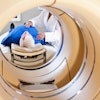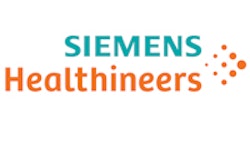Accelerated partial-breast irradiation (APBI) with multicatheter interstitial brachytherapy is a safe and effective alternative to whole-breast irradiation (WBI) and has better cosmetic results, according to new research presented at the European Society for Radiotherapy and Oncology (ESTRO) conference.
APBI's equivalence was demonstrated in a phase III randomized trial from the Groupe Européen de Curiethérapie - ESTRO (GEC-ESTRO). In the trial, APBI was administered over five days with multicatheter interstitial brachytherapy.
The primary objective of the GEC-ESTRO trial was to assess the role of APBI brachytherapy alone compared with WBI with boost in a defined group of patients with invasive (stage I-IIA) breast cancer or ductal carcinoma in situ (DCIS; stage 0) who underwent breast-conserving surgery. Researchers evaluated a total of 1,184 patients ages 40 and older who were randomized to a standardized treatment arm (WBI, n = 551) or an investigational treatment arm (APBI, n = 633). The study had a median follow-up period of 6.6 years.
Previous GEC-ESTRO findings published in the Lancet showed that APBI with multicatheter interstitial brachytherapy has an equivalent rate of overall survival, disease-free survival, and local and regional cancer control as compared with traditional WBI with boost after breast-conserving surgery for selected patients with stage 0-II breast cancer.
The new data presented at ESTRO 2016 provide additional insights into late side effects and cosmesis. Five-year follow-up records on late toxicities and cosmetic results were available for 969 patients (82%) from the original study. The five-year toxicity profile was similar for patients treated with breast-conserving surgery followed by either APBI using interstitial multicatheter brachytherapy or conventional WBI with a tumor bed boost, the researchers found. However, a trend toward fewer late skin side effects and better cosmetic results was observed in the APBI arm.
The rate of excellent/good cosmetic results judged by patients was 87.2% with WBI versus 90.4% with APBI, and the rate was 86.7% with WBI versus 88.2% with APBI when scored by physicians. However, significantly more patients (43.6% versus 30.9%) experienced excellent cosmetic results after APBI.



















